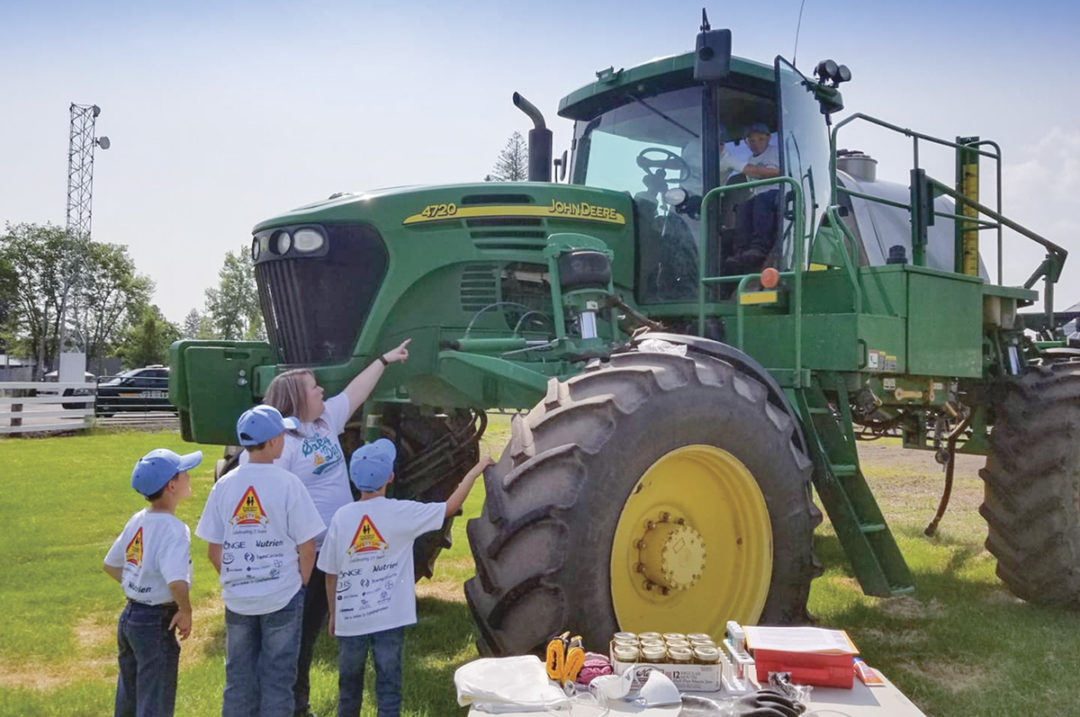The agriculture industry in the U.S. continues to remain the most dangerous, with farming ranking among the most hazardous occupations. Similar to the challenges faced during the fall harvest, farmers work tirelessly, often under pressure from time constraints and unpredictable weather, to accomplish various tasks. This intense workload during the spring planting season elevates the risk of preventable incidents. Despite farms typically being safe environments, the increased demands of this busy period may sometimes lead to a lapse in safety focus.
Be proactive, not reactive
As we usher in the spring planting season, it's vital for farmers to adopt a proactive approach to safety. The demands of farming require careful planning and prioritization of well-being over haste. Long hours and the race against both time and nature heighten the risk of preventable incidents. However, by setting realistic daily goals and maintaining focus, farmers can mitigate these dangers. Skipping meals, avoiding breaks, neglecting hydration and forfeiting sleep not only compromises farmers' health but also impairs concentration, increasing the likelihood of accidents.
Slips, trips and falls are common culprits in farm injuries, often exacerbated by weather hazards, rushed tasks, poor housekeeping and slippery or uneven surfaces. It's vital to quickly clean up spills and wear appropriate, slip-resistant footwear to prevent accidents. Additionally, keeping electrical cords clear of busy areas, arranging equipment to facilitate unobstructed walking pathways and ensuring proper lighting both indoors and out are essential precautions. Remember, never take chances with faulty, broken or unsecured ladders.
Spring is the perfect time to purchase or replace personal protective equipment (PPE). Also, ensure first-aid kits are replenished and fire extinguishers are not expired. Take time to review safety protocols with all workers, both new and seasoned, as this can play an essential role in the safety, health and well-being of all.
Visibility matters
As spring arrives, more farm vehicles will be sharing the roads with other vehicles, underscoring the need for caution when transporting equipment on public roadways. To enhance visibility and alert other road users of your slow-moving status, utilize warning systems such as flashing lights, extremity markings and slow-moving vehicle (SMV) emblems. Ensure SMV emblems are prominently displayed, clean and present on all farm equipment traveling at speeds below 25 miles per hour.
Remind children that, while they may be able to see the equipment or machinery operator, the operator may not always see them. Continuously check for blind spots and take time to conduct walkabouts around your equipment, as children may be hiding from view. This practice can also alert you to any other potential safety issues on or around your equipment.
Never allow kids to climb and play on or near farm equipment, even when it is not in use, and lock up equipment and machinery when you finish using them. Remove the keys and keep them out of reach of children. For equipment that may fall, such as buckets, make sure they are placed in the down position. Never allow children to be passengers on tractors, lawnmowers or other farm equipment.
Safe digging
As the snow melts and the ground becomes ready for spring planting, many people begin gearing up for outdoor digging projects. However, before grabbing the shovel, it's important to remember a vital task – calling 811. This simple, free phone call to the national "call before you dig" number can ensure that any buried utility lines are clearly marked. Whether large or small, calling 811 before digging also helps prevent unplanned disturbances during your project, ultimately saving you time and money while ensuring safety for yourself, your crew and your neighbors.
Whether a seasoned professional or a homeowner embarking on their first digging project, your safety and the safety of those around you is in your hands. According to the Call 811 website, failure to call (or click) before digging results in damage to a buried utility once every six minutes across the U.S. Disturbance to an underground utility line can cause damage to the environment, serious personal injuries and disruption of service for the neighborhood, leading to expenses in fines and repair costs.
National Safe Digging Month, celebrated annually in April, serves as a timely reminder as spring digging projects commence. Simple tasks such as installing a mailbox, building a deck or planting a tree or garden still require a call to 811. A 2021 study by the Common Ground Alliance (CGA) revealed that nearly two in five homeowners put themselves and their communities at risk by digging without calling 811 first. Remember, even if you've excavated an area previously, factors such as erosion and ground settling can change the depth and location of utilities over time.
Protecting our future generation
At Progressive Agriculture Safety Day, (PAF Safety Days) programs offered throughout North America, activities and demonstrations have been designed to educate children, ages 4 to 13, on a variety of safety and health topics. After participants learn potentially life-saving messages, they return home to share the knowledge they gained with their family and friends.
You, too, can join the mission and provide education, training and resources to make farm, ranch and rural life safer and healthier for all children and their communities. Visit the PAF website for more information on how to bring a PAF Safety Day to your local community.








